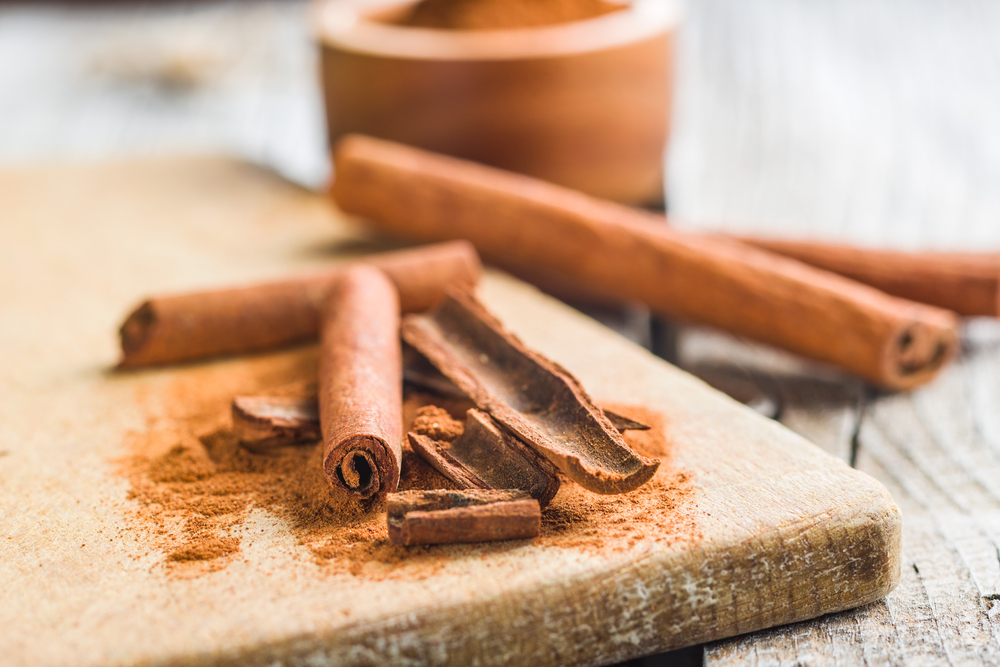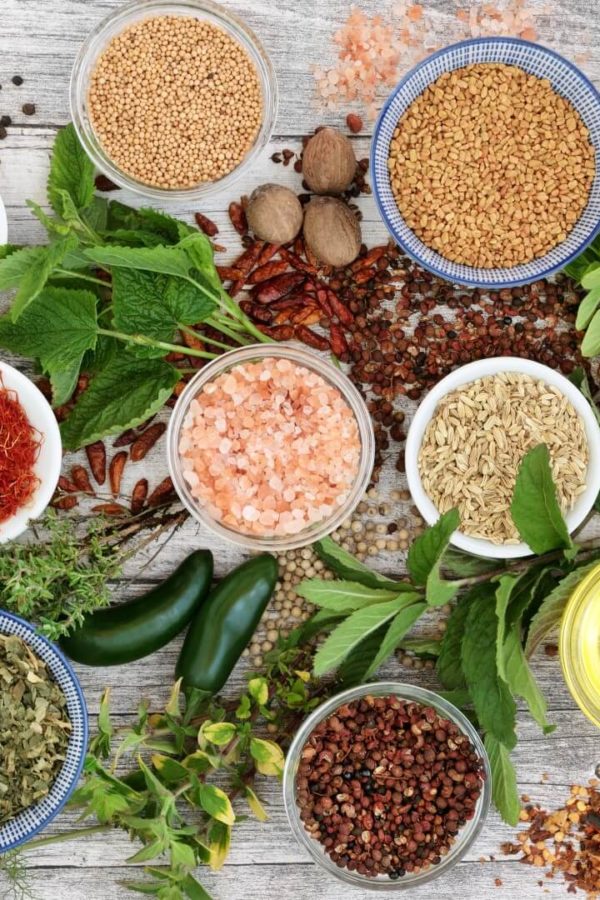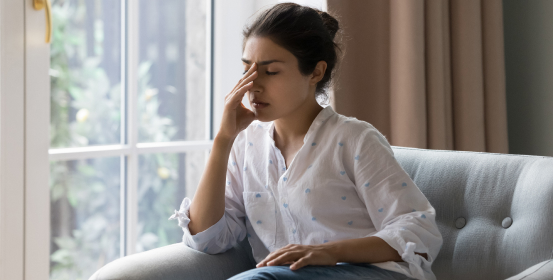Bloating is caused by excess air in the digestive tract, a common and very unpleasant problem. If you experience a feeling of weight in the stomach, abdominal pain, pressure on the bowels and occasionally the ribcage, or abdominal cramps, you are likely suffering from bloating.
Bloating is usually described as a feeling of excessive fullness and abdominal swelling. It can be accompanied by flatulence and diarrhea, as well as abdominal and lower back pain.
What can cause bloating?
Just like most of the other functional problems in the digestive system, bloating is also mostly a consequence of a modern, fast lifestyle and food. The most common causes of bloating are:
- lack of time;
- penchant for “fast”, fatty, and very spicy food;
- unhealthy diet or excessive consumption of the food that causes bloating;
- eating too fast, i.e., insufficient chewing (swallowing of excess air);
- functional constipation (the gas builds up behind the stool, which exacerbates the symptoms).
In most cases, bloating can be eliminated by diet and lifestyle changes. An important change we can make is to improve our breathing and chew food thoroughly. Many people use medications to reduce bloating, but this offers only temporary relief, since it treats symptoms rather than causes.
How to Prevent Bloating?
The good news is that in most cases bloating can be prevented if the cause for it is not some kind of an illness that needs to be treated. It means that indigestion can be avoided by adjusting eating habits and switching to an active lifestyle.
Above all, it is crucial to establish regular bowel movements, i.e., regulate the stool rhythm. Therefore, foodstuffs rich in fiber need to be introduced into one’s diet. In the beginning it might aggravate the symptoms, and that is why such foodstuffs need to be introduced gradually. Some experts consider that combining foodstuffs is also an excellent way of preventing bloating. That means that meat should not be eaten with potatoes, rice, or pasta, but only vegetables. If the meal is made of carbohydrates, it should be eaten only with vegetables, and not meat.
Donat can also be of invaluable aid in regulation of digestion. It has been clinically proven that this mineral water accelerates digestion and eliminates constipation because it draws out the water from the intestinal wall due to a high share of sulphates and increases the volume of intestinal content. At the same time, the magnesium in it relaxes the muscles and additionally accelerates the movement of the stool through the intestines.
First Aid – Natural Remedies for Bloating
Some plants and herbs are rich in essential oils that have a soothing effect on the digestive system and can be used as remedies for bloating. They are known as carminatives and function by promoting the release of enzymes required for effective food digestion. The better food is digested, the less undigested “leftovers” are available to the gas-producing bacteria. These plants include anise, caraway, dill, basil, ginger, mint, and cinnamon. It is recommended that they be consumed after the meal.
Other plants are better consumed prior to the meal in order to reduce bloating. These include mainly bitter herbs such as dandelion, artichoke, and wormwood.
In short, bloating is a common problem that can be prevented with small changes in diet and lifestyle.

Simple Ways to Reduce Bloating
- regulate your digestion;
- gradually introduce high-fibre foods into the diet or consume them in smaller portions over the day;
- avoid carbonated beverages;
- eat and drink slowly and chew food thoroughly;
- eat several smaller meals over the day;
- talk less while eating;
- take a short walk after a meal, if possible.
If diet and lifestyle changes fail to help, bloating might be caused by other conditions, such as the lack of lactose and fructose enzymes, or a functional disorder of the liver and gallbladder. There are also medications that may cause bloating. If nothing seems to help and other symptoms are present along with bloating, you should see your physician to get the right diagnosis.
How to effectively regulate digestion with the help of Donat? With Donat Moments, a free application for Android and iOS!
Frequently Asked Questions
1. What is bloating?
Bloating is an uncomfortable feeling of your stomach being full caused by an excess accumulation of gas in the bowels. It is followed by pain and gas, but it can also cause abdominal cramps or diarrhea.
2. What causes bloating?
The most common cause for bloating is leading an unhealthy lifestyle, i.e., excess consumption of fatty, overly spicy, and fast-prepared food. At the same time, most people eat too fast, so they swallow the air while eating which then enters the intestines. Bloating can also be caused by healthy foodstuffs, such as certain vegetables (legumes, broccoli, asparagus…) and fruit (apples, pears, plums…).
Besides that, bloating can occur in case of overeating, if we often chew gum or gain weight. Pregnant women often suffer from bloating, but it can also be a side-effect of taking certain medications. Of course, bloating can also be caused by serious illnesses or allergies…
3. How to eliminate bloating?
The most we can do to eliminate bloating is to eat healthy and take care of regular digestion. Foodstuffs rich in fiber are especially important but they need to be introduced gradually and in smaller quantities. We should also chew our food well, eat multiple smaller meals instead of fewer big ones, avoid soft drinks and chewing gum and keep moving.
4. Should we avoid foodstuffs that cause bloating?
Certain kinds of cereals, fruit, and vegetables cause bloating, but that does not mean that you are not allowed to eat them anymore because they are still rich in nutrients. You just need to adjust, i.e., reduce their intake, which means to consume them multiple times in small quantities. Most of all, it is important to listen to one’s body and learn how to eat food in a way that is not bad for our wellbeing.
5. How can Donat help us eliminate bloating?
Since it is high in sulphate and magnesium, it has been clinically proven that Donat ensures effective digestion because it increases the volume of the bowel content and at the same time relaxes the muscles and thereby accelerates the excretion. This is how it takes care of regular bowel movements, which is extremely important if we want our daily life to be spent without feeling tension in our abdomen.
Choose chapter:






